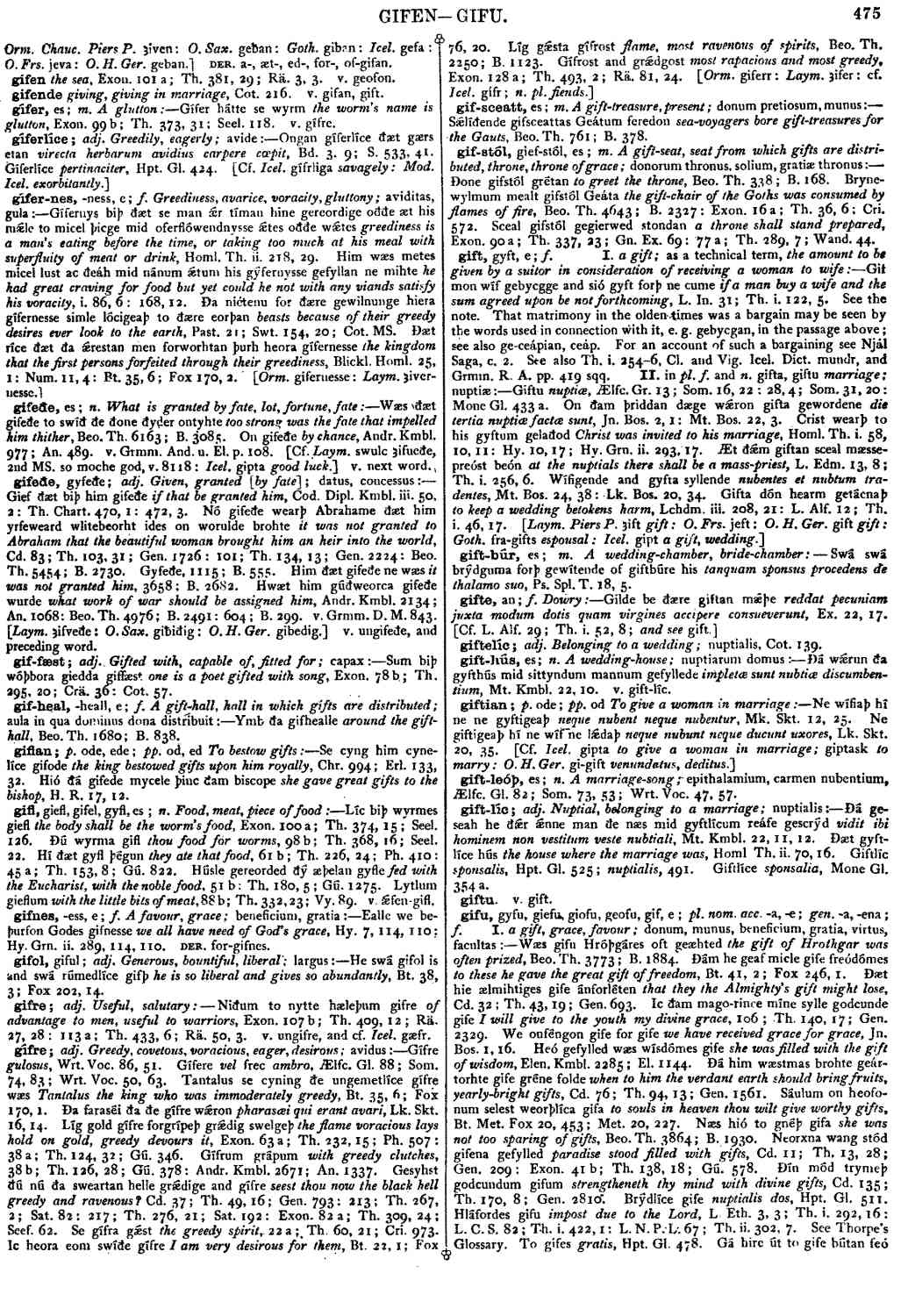gift
- noun [ feminineneuter ]
-
Gif mon wíf gebycgge and sió gyft forþ ne cume
if a man buy a wife and the sum agreed upon be not forthcoming,
- L. In. 31 ;
- Th. i. 122, 5 .
- See the note. That matrimony in the olden times was a bargain may be seen
by the words used in connection with it, e.g. gebycgan, in the passage
above; see also ge-ceápian, ceáp. For an account of such a bargaining see
- Njál Saga, c. 2. See also
- Th. i. 254-6, Cl. and
- Vig. Icel. Dict. mundr , and
- Grmm. R. A. pp. 419 sqq.
-
Giftu
nuptiæ
,- Ælfc. Gr. 13 ;
- Som. 16, 22 :
- 28, 4 ;
- Som. 31, 20 :
- Mone Gl. 433 a .
-
On ðam þriddan dæge wǽron gifta gewordene
die tertia nuptiæ factæ sunt,
- Jn. Bos. 2, 1 :
- Mt. Bos. 22, 3 .
-
Crist wearþ to his gyftum gelaðod
Christ was invited to his marriage,
- Homl. Th. i. 58, 10, 11 :
- Hy. 10, 17 ;
- Hy. Grn. ii. 293, 17 .
-
Æt ðǽm giftan sceal mæsse-preóst beón
at the nuptials there shall be a mass-priest,
- L. Edm. 13, 8 ;
- Th. i. 256, 6 .
-
Wífigende and gyfta syllende
nubentes et nubtum tradentes,
- Mt. Bos. 24, 38 :
- Lk. Bos. 20, 34 .
-
Gifta dón hearm getácnaþ
to keep a wedding betokens harm,
- Lchdm. iii. 208, 21 :
- L. Alf. 12 ;
- Th. i. 46, 17 .
Bosworth, Joseph. “gift.” In An Anglo-Saxon Dictionary Online, edited by Thomas Northcote Toller, Christ Sean, and Ondřej Tichy. Prague: Faculty of Arts, Charles University, 2014. https://bosworthtoller.com/17035.
Checked: 1